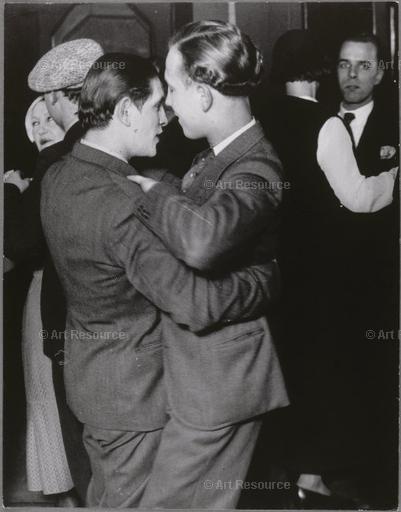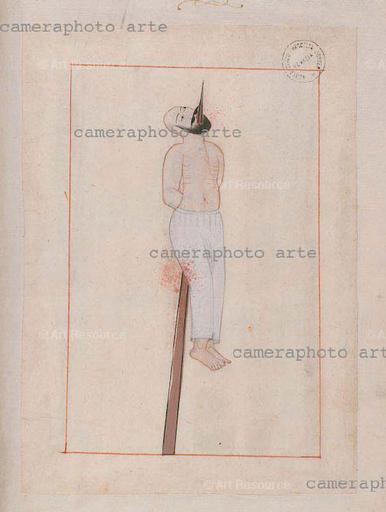On the day after the Orlando bloodbath, I read in Crux Edward Beck’s scripted recollection of the homily he delivered in church the previous morning. The two did not quite square. Between the spoken address and the published account, something crucial was omitted and something ugly added. As can happen with Fr. Beck’s homilies, the gospel becomes a vehicle of persuasion in favor of his personal preoccupations.
Edward Beck is a visiting Passionist priest who offers the noon Mass at my parish every Sunday. He is also a high-profile, on-air spokesman for things Catholic—particularly in relation to homosexuality—for CNN and the major networks. An author and playwright, he is a well-connected, influential maven in the communications industry. In short, a very public figure.
He opened Sunday’s homily with mention of our having woken up that morning to news of the “violence in Florida” in which 50 people were killed. That brief, vague reference to the carnage was the sum of it. Orlando was not named. The gay disco went unmentioned. Admittedly, he was taking for granted that the congregation was up on the news. Nevertheless, the word terrorism was not spoken, Islam never broached.
For Fr. Beck’s purposes, the slaughter was an up-to-the-minute hook on which to hang one more hosanna to love-and-mercy, a soothing conceit stripped of nuance or qualification. Its ultimate aim is support for his particular mission: the normalizing—not to say promoting—of homosexuality. Islamic terror is an unmentionable side note. After all, as Fr. Beck, intoned, none of us know what we might be capable of if we were “pushed to extremes.” (Besides, as he tweeted when news broke: “Easy access to guns/weapons is sickening and wrong #Orlando.”). The best we can do is love.

“Love, and do as you please,” crooned Fr. Beck, [mis]quoting St. Augustine. It was his closing line, a favorite one he has delivered before. And always in the tailwind of the pope’s “Who am I to judge?”
Why the brackets around the prefix mis? Is that not that an accurate quote? Yes, it is. Plucked from context, however, the isolated exhortation distorts Augustine’s intent. It suggests the opposite of the rigor Augustine described in his famous sermon on love (more anon).
Sunday’s first reading had been the story of King David’s confession of guilt to the prophet Nathan: “I have sinned against the LORD.” Did not David and Bathsheba love and do as they pleased? Did David not leave loyal Uriah to pay the price for it? Our homilist neglected to notice.
Next came the Lucan gospel of the sinful woman who lavishes Jesus’ feet with pricey oils—trade tools of a harlot—and bathes them with her tears. Both stories hinge on the interdependence of contrition and forgiveness. True repentance seeks absolution; in turn, the mercy of absolution is a response to repentance. Thus, the refrain of the responsorial psalm that accompanied the first reading: “LORD, forgive the wrong that I have done.”

But contrition was beside the point to Fr. Beck. He had an axe to grind. The grate and scrape of it was all over his next-day essay in Crux: “A Wake-up Call to Ensure Faith Isn’t Hijacked.” The piece opened with breathtaking denial of the nature of Islam and the Koran’s theological imperative to violence:
Neither Catholic nor Islamic teaching in any way justifies violence against a group of people. However, Orlando is a reminder that believers of all sorts are called to be vigilant in assuring that the edicts of our traditions are never hijacked as apologia for nefarious ends.
In other words, we are all bloody-minded, all potential terrorists. Islam has no distinguishing impulse to violence. Moreover, the Church will never “soothe the wounds of an LGBT community” until it jettisons the half-fast tolerance of that tired mantra: love-the-sinner-but-hate-the-sin.
Set aside Beck’s distaste for local parishioners (who “lumbered” into church). Among them, in his telling, was a callous matron whose disapproval of gay club-goers left him “dumbfounded, literally speechless.” (Did this woman really exist? Or was she an invention, a storyteller’s device useful to the aim of the Crux essay?) Ignore, too, Beck’s implicit assertion of moral relativism: “Islamic and Catholic teaching on homosexuality are not dissimilar.”
Not dissimilar. Does the man suggest that, but for warnings such as his, the Church, too, might one day applaud execution of homosexuals? Is this the “nefarious end” to which we might hurtle without an alert fellow like himself to keep a foot on the brake? Is this what Orlando was about?
Stay, for a moment, with the archives of Middle East Media Research Institute (MEMRI). On March 10 2015, MEMRI examined the Islamic campaign against homosexuals:
According to majority interpretations of Islamic shari’a law, homosexuality is indeed punishable by death; this has been clearly stated by well-known and highly influential Sunni Muslim authorities, sheikhs, professors, and Muslim Brotherhood leaders. These have included leading Sunni authority and head of the International Union of Muslim Scholars Sheikh Yousuf Al-Qaradhawi; highly influential Kuwaiti Islamic preacher and Muslim Brotherhood leader Tareq Al-Suweidan; Saudi cleric and Islamic University professor ‘Abd Al-Qader Shiba Al-Hamad; and many others. . . .

Note the term majority interpretations. MEMRI is speaking of conventional Islam, not a fringe variant that pirated the religion from its moorings:
These statements and teachings regarding the death penalty for homosexuality appear in Muslim school curricula, on mainstream television, and in mosque sermons across the Arab and Muslim world, and are also expressed by Muslim authorities in the West. . . . Recent examples of executions of homosexuals by Al-Qaeda and ISIS using these [traditional] methods of stoning to death, throwing off high buildings, and shooting are documented in this report; it should also be noted that ISIS has continued to use U.S. social media, particularly Twitter, to disseminate to its supporters online images of its executions of homosexuals.
MEMRI concludes:
To date, there has been very little discussion in the Arab media about these executions, and there has been no significant Arab or Muslim religious or political leader who has denounced them.

None of this can dispel willed ignorance. Seemingly driven more by self-regard than the gospel, Fr. Beck is on the qui vive to defend his own sexual identity. Preoccupied with sexuality, he appears oblivious to the reality that a priest’s sexuality matters far less to laymen than his commitment to celibacy—defined without Clintonian exceptions conjured by casuists in cassocks.
Without directly naming it, he has alluded to his homosexuality in several sermons. Narcissism will out. (“Before Francis, I did not feel welcome in the Church.”) The admiring, sympathetic congregation has no doubt about what he means.
In Crux, Beck repeats the slushy love-is-all mantra used to defuse distinction between homosexuality and the heterosexual norm: “Love wins every time, in every way.” It is the leaven of the Pharisees, of which we are warned to be aware.
Beck’s reductive use of Augustine’s words betrays the intention of them. Augustine’s famed sermon on love, which begins: “Dearly beloved, let us love one another,” addressed a specific community: faithful Christians of Hippo (in modern Algeria). His words were not a promiscuous broadcast of warm feeling to all and sundry.

The love of which Augustine spoke was not emotive. It had grit. It was a discipline: the soul trained in love of God will do nothing to offend the Beloved. Only in the fullness of its context can the meaning of “Love, and do as you please” be accurately conveyed. Augustine’s purpose is better summarized as “Love God, and do as you please.”
All who do not love God are strangers and antichrists. They might come to the churches, but they cannot be numbered among the children of God. That fountain of life does not belong to them.
Augustine reminds Christians that one of the obligations of love is to admonish the sinner. There is force, even ferocity, to Augustine’s understanding of love:
If any of you should wish to act out of love, brothers, do not imagine it to be a self-abasing, passive and timid thing. And do not think that love can be preserved by a sort of gentleness – or rather tame listlessness. This is not how it is preserved. Do not imagine that you love your servant when you refrain from beating him, or that you love your son when you do not discipline him, or that you love your neighbor when you do not rebuke him. This is not love, it is feebleness. Love should be fervent to correct.
There is the sticking point. Correction arises from negative judgment which, as Fr. Beck observes, “divides rather than unites.” And that is unacceptable to a priest who lobbies for unreserved assent to homosexuality, without regard to entailed behaviors or their consequences. Yet Jesus himself offered no promise of interpersonal or social harmony: “Think you, that I am come to give peace on earth? I tell you, no; but separation.” (Luke 12:51) The gospel repeats the message: “I have come to set a man against his father, a daughter against her mother, a daughter-n-law against her mother-in-law.” (Matt. 10:35).
Division of varying kinds is the inevitable, unwelcome consequence of fidelity to the Word in a world that wants rid of it. In this, our vale of tears, we are necessarily separate even from many whom we long to embrace. But it is in taking up our cross, not in putting it down, that we—all of us—approach those qualities of mind and spirit which Augustine called love.
Note: A version of this essay appeared first in One Peter Five, June 29th, under the title “Hijacking Orlando.”


